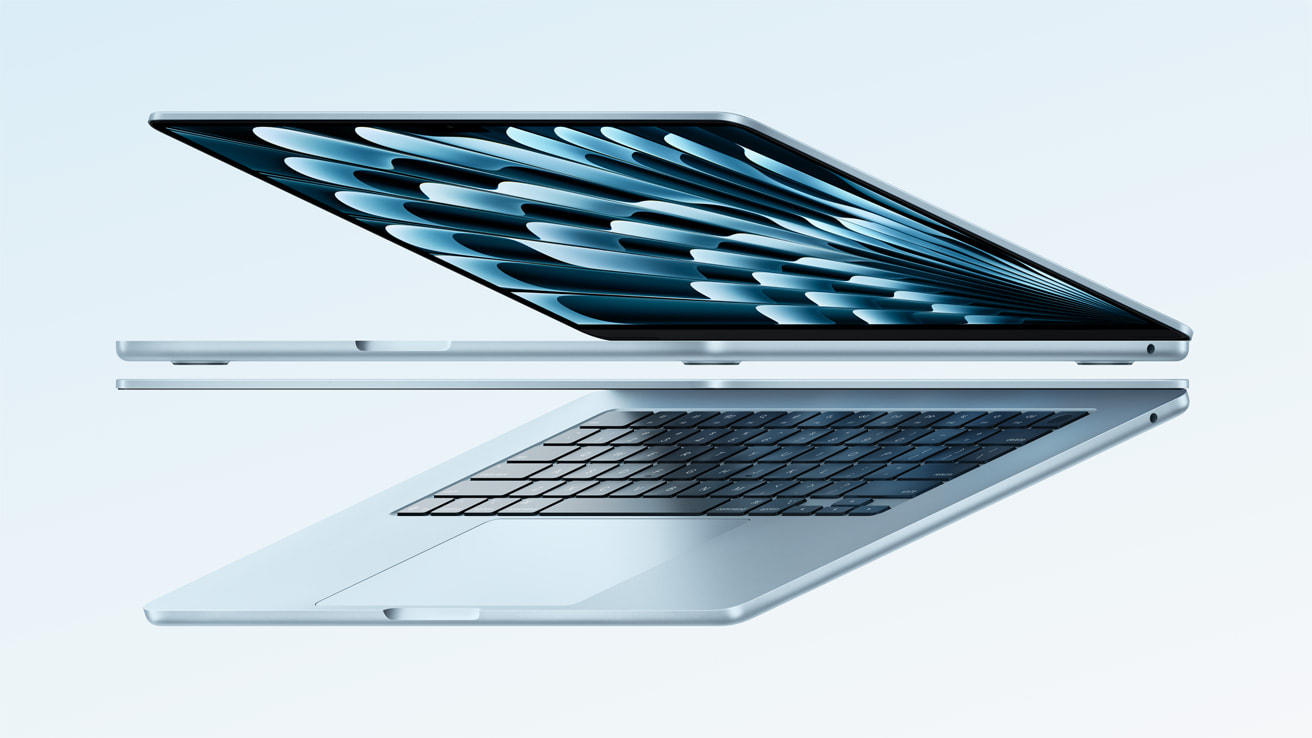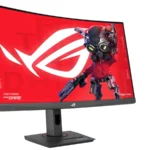Apple’s Mac lineup has emerged as the dominant force in the AI-capable PC market during 2024. According to recent market intelligence reports, Apple captured an impressive 54% market share in this rapidly growing segment. This significant lead over competitors highlights the company’s successful integration of AI capabilities into its Mac computers, powered by Apple Silicon.
The AI-capable PC market saw substantial growth in the final quarter of 2024, with shipments reaching 15.4 million units and representing 23% of all PC shipments during that period. Apple not only led the AI-capable PC segment with a 45% market share in Q4 2024 but also achieved 10.2% of the total PC market including non-AI hardware, outgrowing the top three PC vendors. This remarkable performance demonstrates the increasing consumer preference for Macs with built-in AI capabilities.
Apple’s aggressive pricing strategy for older Mac models and the approaching Windows 10 end-of-support deadline likely contributed to this market dominance. The company’s early investment in custom silicon is now paying dividends, allowing Apple to deliver AI capabilities that consumers and businesses find compelling, while competitors scramble to catch up in this increasingly important segment.
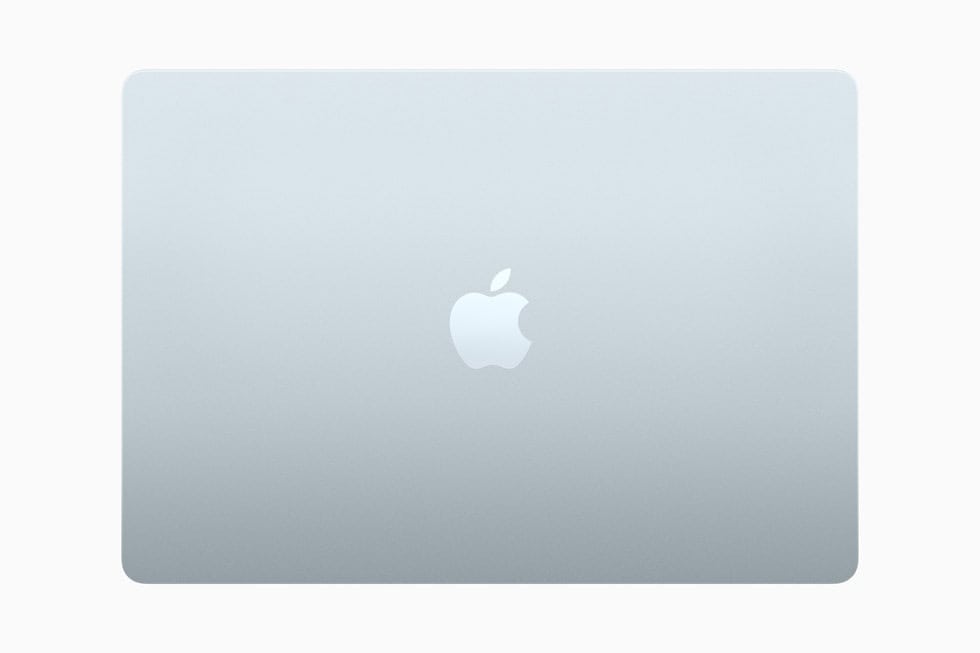
Apple’s AI Advantage: How Macs Took the Lead
Throughout 2024, Apple’s Mac lineup didn’t just thrive—it dominated. As the PC industry leaned hard into AI, Apple surged ahead thanks to a key component: the Neural Engine built directly into Apple Silicon chips. While traditional PC makers scrambled to integrate new AI accelerators and software enhancements, Apple already had the infrastructure in place. The company’s in-house control over hardware and software gave it a serious edge, allowing Macs to process AI tasks faster, more efficiently, and more securely—without needing to rely on cloud-based computation.
By the end of the year, AI-capable PCs represented nearly one in every four machines shipped globally. Apple claimed over half of that market. Its share—an astounding 54% of all AI-capable PC shipments in 2024—was a wake-up call to the rest of the industry. Even more impressively, Apple maintained a 45% share in the final quarter alone, further cementing its status as the AI PC leader.
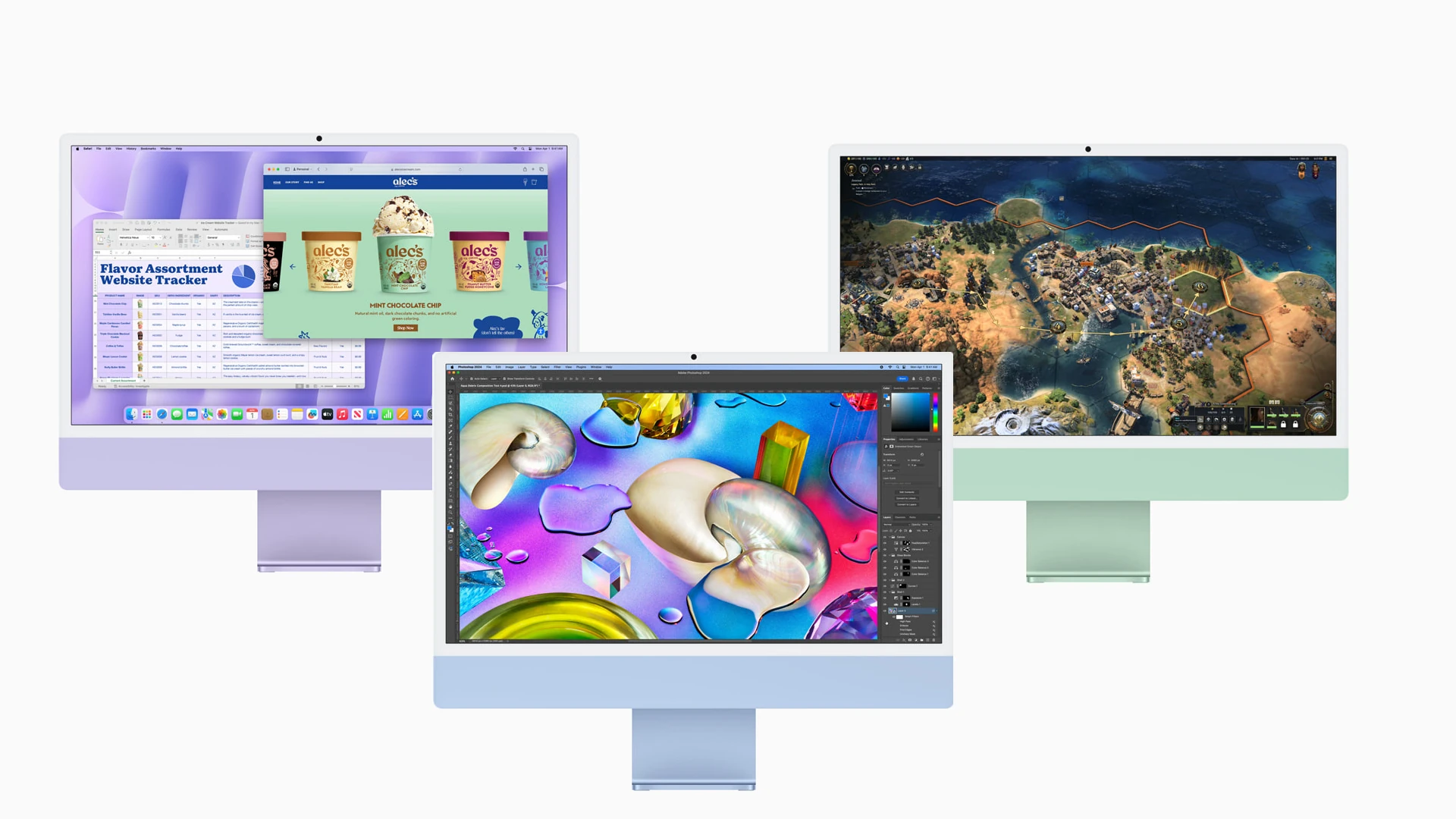
This leap forward wasn’t just about chips. Apple’s ecosystem has become increasingly AI-centric in ways that are tangible to end-users. Features like on-device transcription, real-time language translation, intelligent image and video editing, and privacy-forward personal assistants all leverage the Neural Engine. And because these tools run natively and privately on the device, the user experience is fast, smooth, and secure.
Meanwhile, PC manufacturers like Lenovo, HP, and Dell found themselves playing catch-up. While they collectively made gains with Windows machines powered by Intel’s Meteor Lake and AMD’s Ryzen AI processors, no single vendor came close to Apple’s share. The fragmented nature of the Windows ecosystem meant that despite offering similar silicon-level capabilities, the software layer often lacked the same seamless AI integration found on macOS.
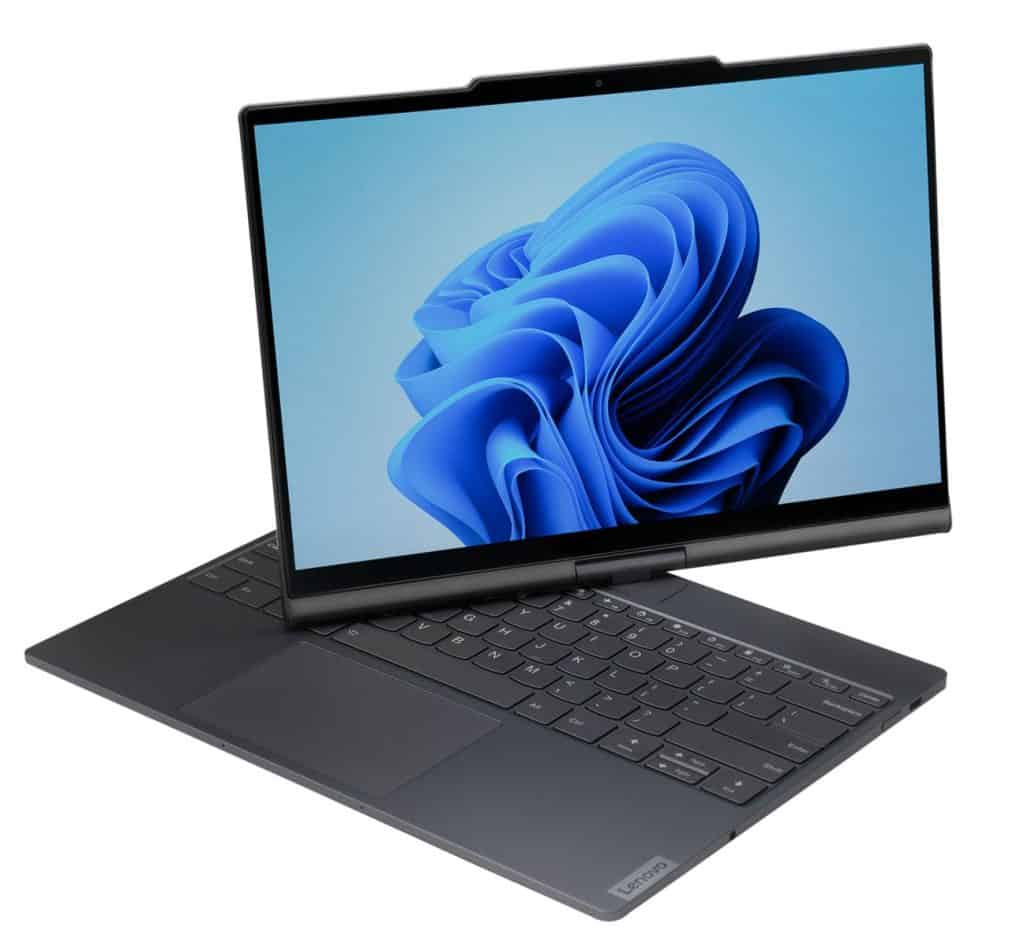
Apple’s timing also played a crucial role. With Windows 10 support ending in late 2025, many enterprise customers began preparing for hardware refreshes in 2024. Apple capitalized on this shift by streamlining its enterprise partner programs and simplifying Mac adoption at scale. The result was a noticeable uptick in institutional adoption of Macs, not just by creatives and developers, but by businesses seeking performance, longevity, and future-proof AI capabilities.
And then there’s performance. Real-world testing in 2024 showed that MacBooks with M2 and M3 chips outperformed similarly priced Windows machines in AI-driven workflows like image generation, coding assistance, audio filtering, and automated video editing. The difference wasn’t just in speed—it was in battery life, thermal efficiency, and user experience. Users could run intensive AI models locally without fans spinning up or batteries draining in hours.
Looking ahead, Apple’s roadmap for AI-focused computing looks even more aggressive. With rumors of an M4 chip designed with even greater AI acceleration, and new macOS features expected to double down on personal intelligence tools, it’s clear the company isn’t slowing down. If 2024 was the year Apple planted its flag in the AI PC market, 2025 might be the year it builds the city around it.
Key Takeaways
- Apple dominated the AI-capable PC market in 2024 with a commanding 54% share, significantly outpacing competitors.
- Mac shipments grew faster than the top three PC vendors, capturing 45% of the AI-capable PC segment in Q4 2024.
- Apple Silicon’s integration of powerful AI capabilities has positioned Mac computers as leaders in the rapidly expanding AI PC market.
Market Analysis and Mac’s Dominance
Apple has established a remarkable position in the AI-capable PC market with significant growth in both market share and shipments. The company’s strategic focus on integrating AI capabilities into their Mac lineup has yielded impressive results across different market segments.
2024 AI-Capable PC Market Overview
The AI-capable PC market experienced substantial growth in 2024, with shipments reaching record levels. In Q4 2024 alone, AI-PC shipments totaled 15.4 million units, representing 23% of all PC shipments during that quarter.
For the full year 2024, Apple emerged as the dominant player in this specialized market. The company captured an impressive 54% share of all AI-capable PC shipments, demonstrating the strong market acceptance of Apple Silicon‘s AI capabilities.
The expansion of AI-PC adoption has been driven by increased consumer awareness of AI benefits and enterprise demand for more powerful computing solutions. Industry analysts from Canalys noted that this segment grew faster than the overall PC market, indicating a shift in consumer and business preferences toward AI-enhanced computing devices.
Apple’s Growth in Mac Shipments
Apple’s Mac lineup delivered exceptional performance in the final quarter of 2024. The company achieved a 10.2% share of the total PC market, a significant improvement from previous years.
In the AI-capable PC segment specifically, Apple secured a commanding 45% market share in Q4 2024. This represents nearly half of all AI-capable PC shipments for the quarter, showcasing the company’s dominance in this high-value segment.
Apple’s growth rate outpaced the top three traditional PC vendors. According to Canalys analyst Kieren Jessop, Apple “finished strong in Q4 2024, significantly outgrowing the top three vendors” in both total PC market share and in the AI-capable PC segment.
The company’s success can be attributed to their custom Apple Silicon, which efficiently integrates AI processing capabilities while maintaining strong performance and battery life advantages.
Competitor Landscape
Traditional PC manufacturers have struggled to match Apple’s momentum in the AI-PC market. Lenovo, HP, and Dell collectively hold smaller shares of the AI-capable PC segment despite their established presence in the broader PC market.
These manufacturers face challenges in optimizing their systems for AI workloads while maintaining competitive pricing. Their reliance on third-party chips and Windows-based systems creates additional integration complexities not faced by Apple’s vertically integrated approach.
The enterprise segment remains a battleground where traditional vendors maintain stronger positions. Commercial share distribution shows more balanced competition, with business customers often preferring familiar Windows-based systems despite Apple’s technical advantages.
Industry analysts expect increased competition through 2025 as Lenovo, HP, and Dell expand their AI-capable PC offerings with new processor options and enhanced software integration.
Technological Advancements and Ecosystem
Apple’s dominance in the AI-capable PC market stems from its technical innovations and the seamless integration across its product lineup. The company’s strategic development of custom silicon and its robust ecosystem continue to provide competitive advantages as AI computing becomes increasingly important.
Apple Silicon and AI Capabilities
The introduction of Apple Silicon marked a turning point for Mac’s AI capabilities. The M-series chips feature dedicated Neural Processing Units (NPUs) specifically designed to accelerate machine learning tasks. The M4 chip, featured in Apple’s latest Macs, delivers substantial improvements in AI processing power compared to previous generations.
These NPUs enable on-device AI workloads to run efficiently without requiring cloud processing, enhancing both performance and privacy. According to Canalys data, AI-capable PC shipments reached 13.3 million units in Q3 2024, representing 20% of all PC shipments. Apple’s M4-equipped Macs have captured a significant portion of this market.
Apple Intelligence, the company’s suite of advanced AI capabilities, has been optimized to run on these custom chips. This integration allows for features like smart image processing, advanced text generation, and contextual computing to operate directly on the device.
Integration with Apple Ecosystem
The Mac’s success with AI workloads is amplified by its integration with the broader Apple ecosystem. Continuity features allow AI tasks to be seamlessly handed off between Macs, iPads, and iPhones, creating a unified experience across devices.
This ecosystem approach has strengthened brand loyalty among users. Apple’s interconnected hardware, software, and services drive a consistent user experience that competitors struggle to match.
Apple Intelligence features work across multiple Apple devices, allowing for consistent AI capabilities whether using a Mac, iPad, or iPhone. This cross-device functionality provides significant value to users invested in multiple Apple products.
The Apple Partner Network has also expanded to support AI development across the ecosystem. Partners gain access to tools and resources for creating applications that leverage the Neural Engine across Apple devices.
The Impact of Trade Policies and Market Conditions
Recent shifts in trade policies have influenced Apple’s strategy in the AI-capable PC market. Trump’s tariffs on Chinese imports pushed Apple to diversify its manufacturing base and reconsider pricing strategies in key markets.
Despite these challenges, Apple has maintained strong market position through strategic price reductions in emerging markets. The company has offset potential tariff impacts by emphasizing the value of its AI capabilities and ecosystem integration.
The growing demand for AI computing has created new opportunities in markets previously resistant to Apple’s premium pricing. As businesses and consumers increasingly prioritize AI performance, Apple’s technological advantages have helped justify its higher price points.
Market conditions have also driven Apple to enhance the value proposition of its Macs through regular updates to Apple Intelligence and continuous improvements to on-device AI capabilities. These enhancements help maintain competitiveness in price-sensitive markets.
Frequently Asked Questions
Apple’s dominance in the AI-capable PC market throughout 2024 has sparked curiosity about the company’s strategies, technologies, and market position. The search results provide valuable insights into Apple’s significant market share and the growing importance of AI capabilities in personal computers.
How has Apple’s Mac line evolved to support AI applications?
Apple’s Mac line has evolved significantly through the integration of M-series chips with dedicated neural engines. These specialized processors enable efficient AI processing directly on the device.
The neural processing units (NPUs) in Apple Silicon chips allow Macs to handle complex AI workloads without relying heavily on cloud processing. This integration began with the M1 chip and continued to advance with subsequent iterations.
Each generation of Apple Silicon has improved the neural engine’s capabilities, with the M4 chip representing the latest advancement in Apple’s on-device AI processing architecture.
What were the market share statistics for AI-capable PCs in 2024?
According to Canalys data, Apple commanded approximately 60% of the AI PC market in Q2 2024. This dominant position came when over 8.8 million AI-capable computers were shipped globally.
By Q3 2024, AI-capable PC shipments reached 13.3 million units, accounting for 20% of all PC shipments during that quarter. This represents significant growth in the AI PC segment.
Apple’s total PC market share stood at 12.3% in Q2 2024, with shipments of 2,322,000 units. This represented a modest 0.5% annual growth in its overall PC business.
What differentiates Apple’s Mac computers in handling AI tasks compared to competitors?
Apple’s unified memory architecture allows for faster data access between the CPU, GPU, and NPU, eliminating bottlenecks when handling AI workloads. This design contrasts with many competitors’ more segmented memory approaches.
The tight integration between Apple’s hardware and macOS software enables optimized performance for AI applications. Apple develops both components specifically to work together.
Apple’s approach emphasizes on-device processing for privacy and performance reasons, while many competitors focus on cloud-based AI solutions that require constant internet connectivity.
What software and hardware integrations in Macs contribute to their AI capabilities?
Core ML, Apple’s machine learning framework, allows developers to easily implement AI features that leverage the neural engine. This software framework is optimized specifically for Apple’s hardware.
The Metal API provides direct access to the GPU for AI computation, complementing the neural engine’s capabilities. This enables more flexible AI processing approaches.
macOS includes system-level AI features like image recognition, natural language processing, and voice recognition that utilize the neural engine. These features work seamlessly without requiring third-party solutions.
Can the dominance of Apple’s Mac line in the AI PC market be attributed to a specific model or feature set?
The introduction of the M-series chips with integrated neural engines is the primary factor behind Apple’s AI PC market dominance. Every Mac with Apple Silicon contributes to this market position.
The consistency across Apple’s lineup means even entry-level models include neural engines, unlike competitors who often reserve AI capabilities for premium devices. This approach has democratized access to AI processing.
Professional-grade models like the MacBook Pro and Mac Studio offer enhanced NPU performance for more demanding AI workloads, broadening Apple’s appeal across different market segments.
What are the implications of Apple’s dominance in the AI-capable PC market for developers and consumers?
For developers, Apple’s large market share creates a substantial audience for AI-enhanced applications. This incentivizes investment in AI features that leverage the Mac’s neural engine.
The consistency of Apple’s neural engine architecture simplifies development compared to the fragmented landscape of Windows AI PCs. Developers can optimize for a single platform.
Consumers benefit from a growing ecosystem of applications that deliver AI capabilities without requiring cloud processing. This provides both performance and privacy advantages in day-to-day computing.

